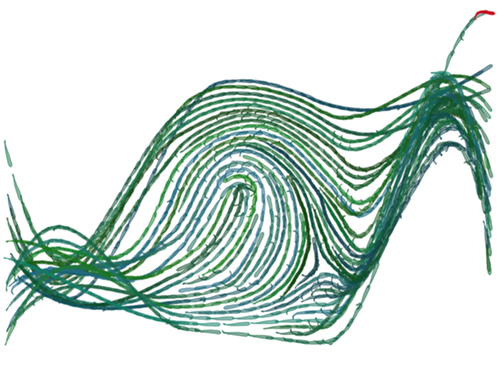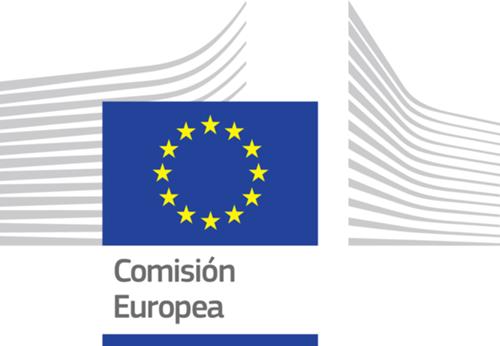Interactivos?'14: Rethinking collective behavior and action. Call for projects
> Dates
> Introduction
> Call for proposals
> How the workshop will be run
> Commitments of those selected
> Project assessment criteria
> Accommodation and travel
> Registrations

Artistic representation of the trajectories of several zebrafish (Danio rerio). Image credit: Alfonso Pérez-Escudero and Sara Arganda
Dates
- Open call until: October 13 16, 2014 at 23:59 CET
- Publication of selected projects: October 20, 2014
- Call for collaborators: October 21, 2014
- International Simposium: November 11 and 12, 2014
- Workshop: November 13 to 23
Mentors: Gonzalo G. de Polavieja (Laboratorio de Neuroetología en el Instituto Cajal) and Abelardo Gil-Fournier
Scientific facilitators: Angel C. Román, Gabriel Madirolas, Marta Iglesias, Francisco Romero, Diego López Pigozzi, Eva Kobak, María Cano, Julián Vicente Page and Victoria Burgada
With the participation of Daniel Lombraña
Technical advisor: Chema Blanco
Introduction
Interactivos?'14 is an initiative born from the common interest of the Neuroethology Lab at Instituto Cajal (CSIC) and Medialab-Prado to explore new ways to understand, measure, analyze and tapper the benefits of human collectives in life, science and art.
The programme comprises a number of actions in varying formats intended to bring together different areas of knowledge, disciplines and outlooks on the notion of the collective, in the form of discussion and practical sessions. It aims to involve professional and amateur scientists, artists, designers, engineers, town planners, educators, sociologists, activists, entrepreneurs, people connected with public administration and any citizen interested in being part of this process of experimentation and reflection. Based on experimental studies and data analysis, the programme will be addressing issues such as the following:
- What can we learn from other species sush as ants or fishes about the way our brain works and our collective behaviour?
- How social networks help us understand human collectives?
- How do we interact with each other and with our environment?
- What kind of collective actions allow our cities and hwo does internet affected them?
- Is creation an individual or collective matter?
- Is learning a solitary process or implies interaction with others?
- Is there a natural tendence to cooperation?
- To what extent are collectives capable of self-governance? Are leaders necessary?
- What are the possibilities for art in collectives?
- What new forms of political expression can we use in collectives?
- What kinds of new technology will help us understand and enhance social action?
Call for proposals
The workshop will run a maximum of 8 proposals in parallel, selected by open competition and putting forward different forms of creative experimentation with technology for measuring, analysing and organising collective behaviour and action.
Of the submitted projects, a maximum of 8 will be selected for development in the workshop, which will be held from November 13 -23.
The proposals submitted must be open to participation by people interested in collaborating and who can contribute to the workshop while it is in progress.
Initiatives may be submitted individually or collectively. Each participant or team may enter as many submissions as they wish.
Once the projects have been selected, a registration period will open for those who want to take part as collaborators in each. The registration period for collaborators will open on October 17 via the Medialab-Prado website.
How the workshop will be run
- The list of selected projects will be published on 17 october and the registration period for people wishing to collaborate will be opened.
- From 13 to 23 November all the projects and collaborators will meet and working groups will be formed; projects will be discussed in groups with the appraisers and the programme will start.
- The theoretical discussion seminar will be held on 11 and 12 November, after which the projects will be run by the groups with their appraisers and a final prototype will be presented on the last day.
During the workshop, ideas will be tested out and prototypes will be developed by participants working in groups coordinated by the project promoter and including everyone interested in collaborating. The groups will be supported and advised by invited technical assistants and teachers, and will also have the space, equipment and materials they need to run their projects.
We assume that any work done in the workshop will use free and open software, that the projects will be based on open standards and that the results will be available under licensing that allows re-appropriation, reuse and distribution of the same.
The workshops will be run in English and Spanish.
The workshop is aimed especially at projects and collaborators from Madrid. In the case of projects and collaborators from outside Madrid, each participant will have to pay their own accommodation and travel expenses.
At the end of the workshops an exhibition of the resulting prototypes will be held for a minimum of one month.
Commitments of those selected
- The selected individuals and groups agree to attend every day of the workshop.
- Likewise, they agree to complete and adequately document their submitted projects.
- The selected projects must accept and encourage participation from interested individuals.
- The project credits will describe the contribution of each team member and their role in the workshop.
- The organisation encourages and supports the use of free software when developing projects, as well as the results of the same being made free to use via open licensing.
Project assessment criteria
- Relevance to the general programme objectives.
- How innovative and experimental they are.
- The clarity of the project and its suitability for the workshop methodology and time frame (the aim is to have a prototype ready by the end of the workshop. Submissions must indicate which parts of the project may be prototyped within the time frame of the workshop and which cannot).
- Use of open-source tools and licensing that allows free access to procedures and results.
Accommodation and travel
- On request and for participants living outside Madrid, Medialab-Prado will provide youth hostel accommodation for the duration of the workshop.
- Travel expenses will be paid for one person per project selected.
Registrations
Anyone interested in taking part in the workshop should complete and return the form shown below.
Submission deadline: 13 16 October 2014
For further information: talleres(at)medialab-prado.es




 Medialab-Matadero Madrid
Medialab-Matadero Madrid